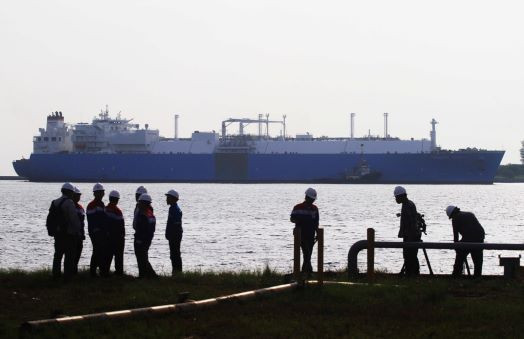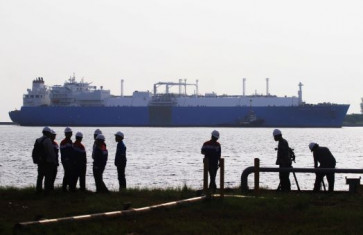Popular Reads
Top Results
Can't find what you're looking for?
View all search resultsPopular Reads
Top Results
Can't find what you're looking for?
View all search resultsIndonesia's LNG strategy and its impact on the nickel supply chain
Indonesia's strategic pivot from coal to LNG and renewable energy sources represents a critical step toward achieving its net-zero emissions goal by 2060.
Change text size
Gift Premium Articles
to Anyone
I
ndonesia is gearing up to move away from a predominantly coal-based economy to one focused on natural gas and renewable energy sources to achieve its pledge of net zero emissions by 2060.
Leading the transition to cleaner sources of energy is Indonesia's state-owned utility PLN. PLN plays a pivotal role in the country's electric power distribution.
With an ambitious plan to cap power sector emissions at 247 million tonnes of CO2 equivalent (mtCO2e) by 2030, PLN Energi Primer Indonesia (PLN EPI) is committed to ensuring both greater access to reliable electricity and significant emissions reductions. Following the resumption of post-pandemic activities, emissions from the energy sector surged to 715 mtCO2e in 2022, driven by an increase in coal-fired power generation.
Despite coal accounting for 67 percent of Indonesia’s energy mix in 2023 for power generation, the nation is undergoing a broader energy transformation. This transition is particularly relevant to the nickel industry, which is crucial for the production of electric vehicle (EV) batteries and is significantly impacted by Indonesia’s shift to cleaner energy sources.
PLN’s liquefied natural gas (LNG) demand is projected to be around 84 cargoes (one cargo usually weighs 72,000 tonnes) for 2024, 90 cargoes annually from 2025 to 2029, with approximately 62 cargoes allocated for West Java and 18 cargoes to North Sumatra. This figure reflects the utility's shift toward LNG to support its increased gas-fired power generation capacity.
PLN’s overall LNG demand is expected to rise from 5 million tonnes in 2023 to at least 7 million tonnes by 2030. This anticipated increase highlights the growing need for LNG imports as the country moves away from coal and other energy sources.
Out of Indonesia’s total installed electric generation capacity of 81 gigawatts (GW), PLN group generates 60 percent, with the remainder operated by independent power producers, permit holders, private utilities and the government. A landmark development in 2024 was the awarding of a contract for the co-development, ownership and operations of LNG import terminals in the Sulawesi-Maluku power cluster. This project underscores PLN EPI's shift in fuel sourcing and the significant role LNG will play in Indonesia’s evolving energy landscape.



















